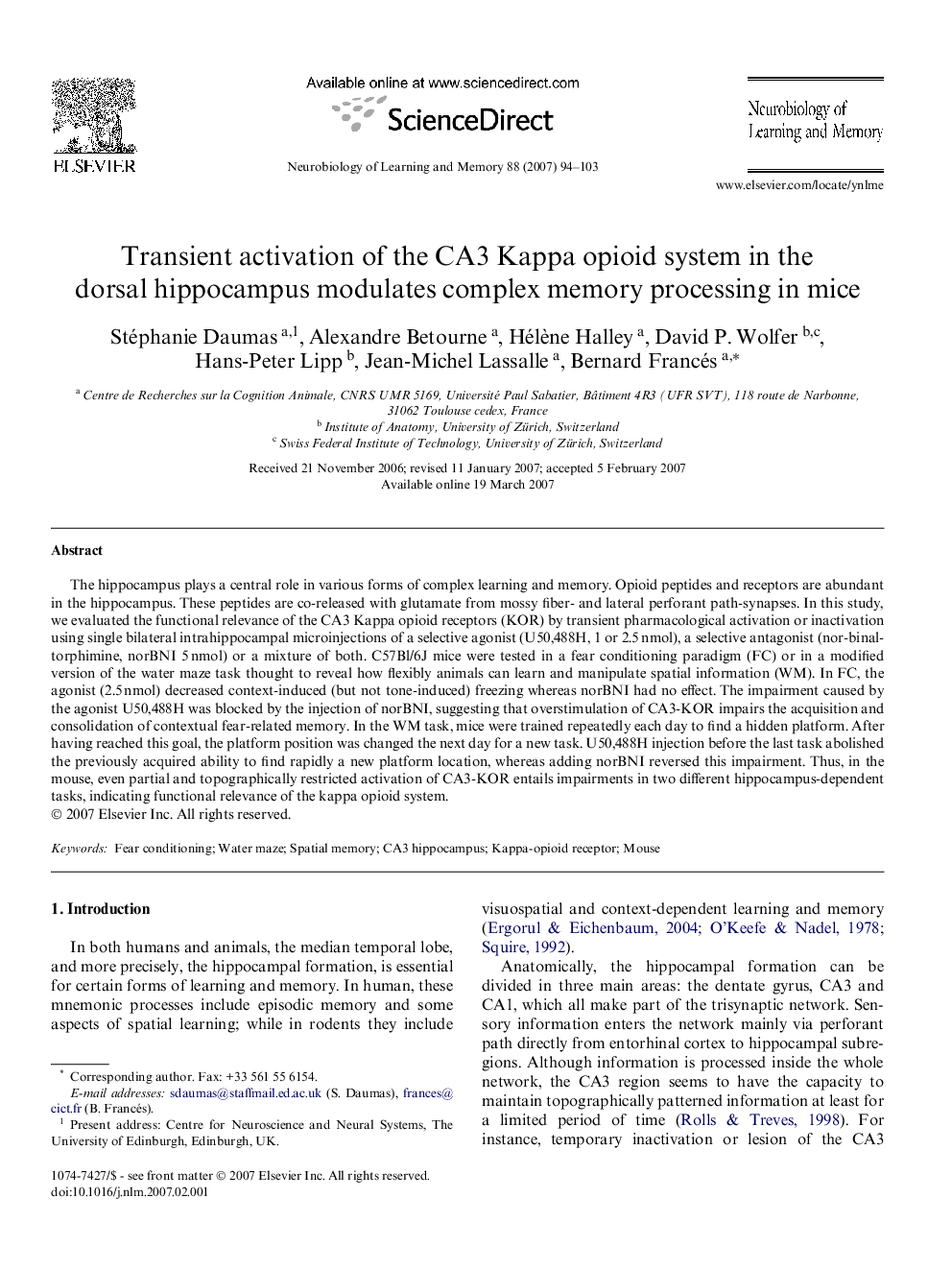| Article ID | Journal | Published Year | Pages | File Type |
|---|---|---|---|---|
| 937258 | Neurobiology of Learning and Memory | 2007 | 10 Pages |
The hippocampus plays a central role in various forms of complex learning and memory. Opioid peptides and receptors are abundant in the hippocampus. These peptides are co-released with glutamate from mossy fiber- and lateral perforant path-synapses. In this study, we evaluated the functional relevance of the CA3 Kappa opioid receptors (KOR) by transient pharmacological activation or inactivation using single bilateral intrahippocampal microinjections of a selective agonist (U50,488H, 1 or 2.5 nmol), a selective antagonist (nor-binaltorphimine, norBNI 5 nmol) or a mixture of both. C57Bl/6J mice were tested in a fear conditioning paradigm (FC) or in a modified version of the water maze task thought to reveal how flexibly animals can learn and manipulate spatial information (WM). In FC, the agonist (2.5 nmol) decreased context-induced (but not tone-induced) freezing whereas norBNI had no effect. The impairment caused by the agonist U50,488H was blocked by the injection of norBNI, suggesting that overstimulation of CA3-KOR impairs the acquisition and consolidation of contextual fear-related memory. In the WM task, mice were trained repeatedly each day to find a hidden platform. After having reached this goal, the platform position was changed the next day for a new task. U50,488H injection before the last task abolished the previously acquired ability to find rapidly a new platform location, whereas adding norBNI reversed this impairment. Thus, in the mouse, even partial and topographically restricted activation of CA3-KOR entails impairments in two different hippocampus-dependent tasks, indicating functional relevance of the kappa opioid system.
